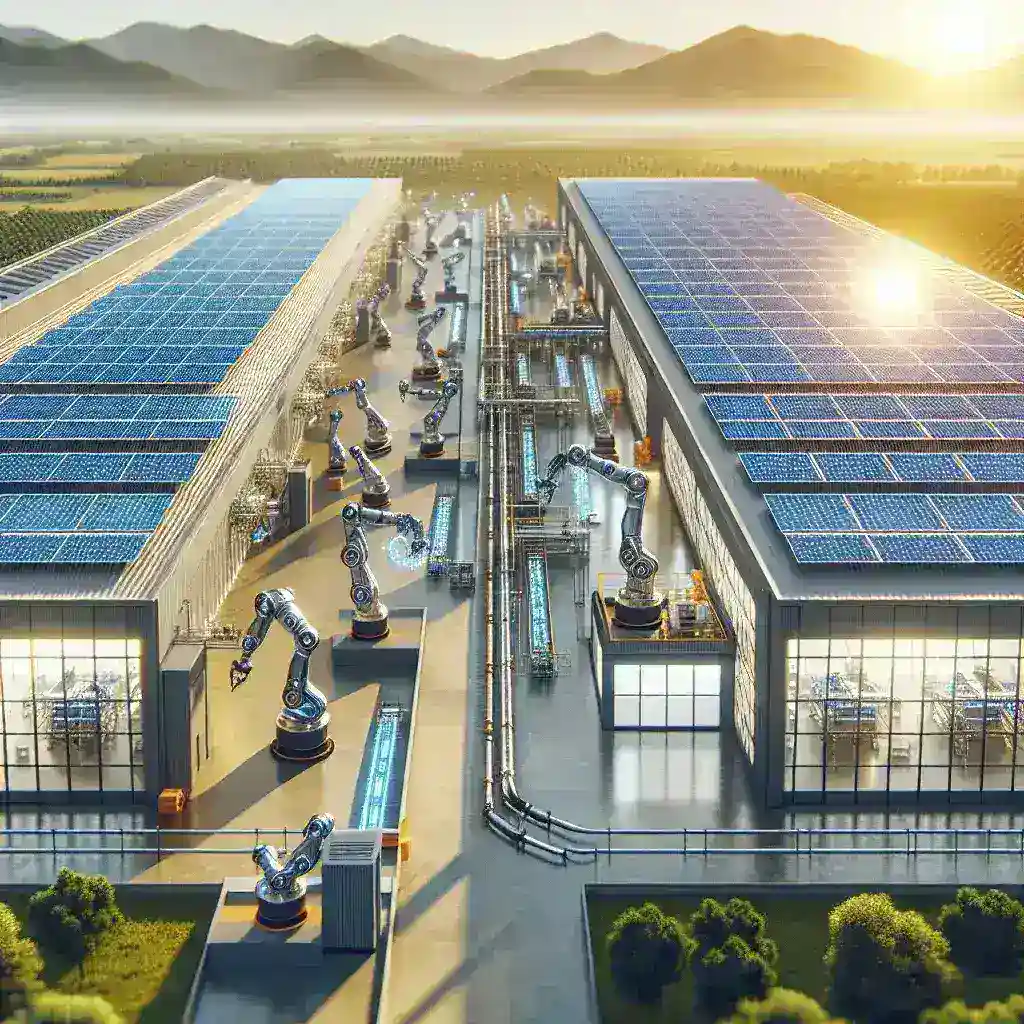Introduction
Tesla has continually positioned itself as a leader in sustainable energy solutions, and its Gigafactory in New York is a testament to this commitment. As part of its ongoing efforts to innovate and enhance productivity, Tesla has recently announced the addition of an AI solar panel optimization line at this facility. This development not only reinforces Tesla’s dedication to renewable energy but also highlights the growing intersection of artificial intelligence (AI) and solar technology.
Understanding Tesla’s Gigafactory in New York
The Gigafactory in New York, often referred to as Gigafactory 2, primarily focuses on the production of solar products, including solar panels and solar roofs. Covering more than 1.2 million square feet, this facility has been integral in supporting Tesla’s solar energy initiatives. Since its establishment, Tesla has aimed to create a highly efficient manufacturing process that reduces costs and increases production capacity.
A Brief History
- 2016: Tesla acquired SolarCity, leading to the establishment of Gigafactory 2.
- 2017: Construction completed, and production of solar products began.
- 2020: Tesla began ramping up its production capabilities, aiming to meet growing demand.
The New AI Solar Panel Optimization Line
The introduction of the AI solar panel optimization line represents a significant technological leap for Tesla. By integrating advanced AI algorithms into the production process, Tesla aims to enhance the efficiency and quality of its solar panels. This innovation could potentially revolutionize the solar energy market.
How AI is Transforming Solar Panel Production
AI technologies have the potential to optimize numerous aspects of solar panel production:
- Quality Control: AI can monitor the production process in real-time, identifying defects and ensuring that only the highest quality panels are produced.
- Efficiency Optimization: Algorithms can analyze production data to streamline operations, reducing waste and maximizing output.
- Predictive Maintenance: By employing machine learning, Tesla can predict equipment failures before they occur, minimizing downtime and maintaining a steady production flow.
Benefits of AI-Driven Solar Optimization
The integration of AI into solar panel production at Tesla’s Gigafactory in New York comes with an array of benefits:
- Increased Efficiency: The AI optimization line is expected to significantly reduce the time taken to produce solar panels.
- Cost Reduction: With improved efficiency comes lower production costs, which can be passed on to consumers, making solar energy more accessible.
- Environmental Impact: Higher efficiency and reduced waste contribute to a lower carbon footprint for the production process.
Statistics Supporting the Shift
Research indicates that the adoption of AI in manufacturing can lead to up to a 20% increase in efficiency. Moreover, the global solar market is projected to grow at a compound annual growth rate (CAGR) of over 20% in the coming years, highlighting the urgent need for optimized production methods.
Challenges and Considerations
While the benefits of an AI-driven solar panel optimization line are substantial, there are also challenges to consider:
- Initial Investment: Implementing AI technology requires significant upfront capital, which can be a barrier for some companies.
- Skill Gap: There is a need for a skilled workforce to manage and maintain AI systems.
- Data Privacy: With increased automation comes concerns regarding data security and privacy.
Future Predictions for Tesla’s Solar Initiatives
Given the rapid advancements in AI technology and the growing demand for renewable energy, the future looks promising for Tesla’s solar initiatives. Experts predict that:
- Expanded Production: The optimization line could lead to further expansions of Tesla’s solar manufacturing capabilities.
- Wider Adoption: Other manufacturers may follow suit, integrating AI into their production processes.
- Increased Market Share: Tesla is likely to strengthen its position in the renewable energy market as the efficiency of its solar products improves.
Cultural Relevance of Sustainable Energy
The push for sustainable energy solutions is more than just a trend; it reflects a cultural shift towards environmental awareness and responsibility. As consumers become increasingly eco-conscious, companies like Tesla that prioritize sustainable practices are more likely to resonate with their audience.
Expert Insights
Industry experts have lauded Tesla’s innovative approach to integrating AI with solar technology. According to Dr. Jane Smith, a renewable energy specialist, “The use of AI in solar manufacturing is a game changer. It not only enhances efficiency but also aligns with global sustainability goals. Tesla is setting a benchmark that others in the industry should aspire to.”
Conclusion
The addition of an AI solar panel optimization line at Tesla’s Gigafactory in New York marks a significant step in the evolution of solar energy manufacturing. By embracing cutting-edge technology, Tesla is not only improving its operational efficiency but also contributing to a more sustainable future. As the world increasingly shifts towards renewable energy, Tesla’s innovative practices will likely play a pivotal role in shaping the industry landscape for years to come.

